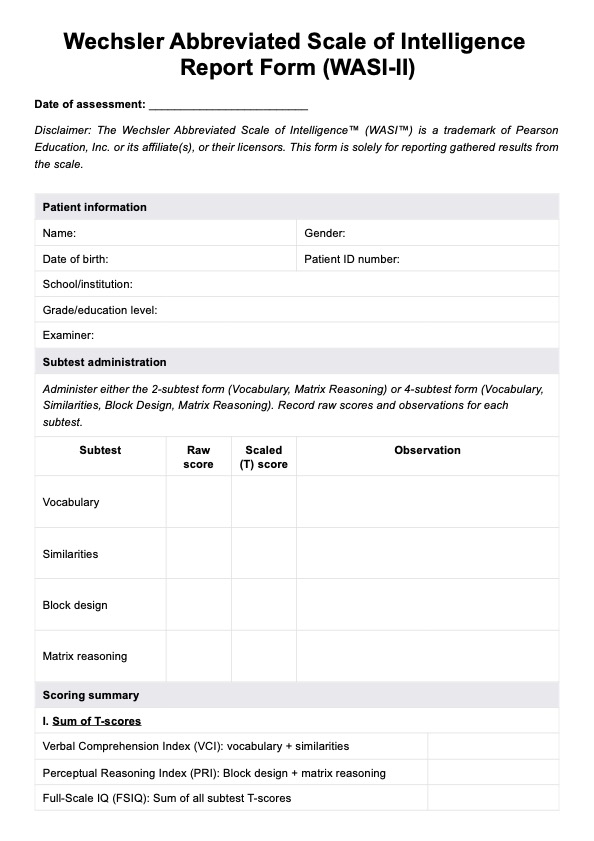The Wechsler Abbreviated Scale of Intelligence (WASI) is a short-form performance scale designed to measure intellectual functioning through verbal and nonverbal subtests. It provides a reliable measure of general intelligence and is often used as a screening tool before conducting more comprehensive evaluations.

WASI
Integrate Carepatron's free Wechsler Abbreviated Scale of Intelligence (WASI) PDF template and effectively streamline cognitive assessments.
WASI Template
Commonly asked questions
The WASI-II introduced updated norms, improved test items, and a more representative sample to enhance clinical utility and accuracy. It also refined the scoring process and administration guidelines to align with modern intelligence testing standards.
The WASI is a brief screening tool designed to estimate general intellectual ability, while the Wechsler Adult Intelligence Scale (WAIS) is a comprehensive measure that provides a detailed assessment of cognitive functioning across multiple domains. The WAIS includes more subtests and offers a deeper analysis of verbal reasoning, perceptual reasoning, working memory, and processing speed.
EHR and practice management software
Get started for free
*No credit card required
Free
$0/usd
Unlimited clients
Telehealth
1GB of storage
Client portal text
Automated billing and online payments











